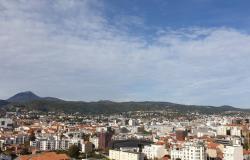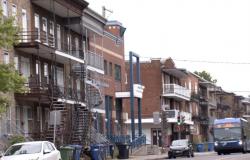Homelessness, street gangs, guns: two-thirds of Montrealers feel that their city is less safe than five years ago, reveals a survey conducted for the Brotherhood of Police including The newspaper got a copy.
“Despite the fact that Montreal remains safe, there is a significant deterioration in the feeling of security due to the increase in violence. It’s time to act, we must not wake up in five or ten years,” insists Yves Francoeur, president of the Brotherhood of Police Officers of Montreal (FPPM).
According to a survey commissioned by its union from the Léger firm, three out of four Montrealers believe they feel very or fairly safe in their city. However, no less than 65% of respondents nevertheless believe that the city is less safe today than five years ago.
More than 1,500 people living in the Montreal metropolitan area responded to the survey, 80% of whom live directly on the island. Data collection was completed before the series of seven murders in ten days which recently shook the metropolis.
“It exactly reflects the perception of police officers on the road and during investigations. This confirms that citizens are worried, with good reason,” explains Mr. Francoeur.
THE Newspaper reported last Thursday that the number of crimes in Montreal had increased by 11.5% in 2023, compared to the previous year, according to the SPVM’s annual report which must be made public this week.
Hot sectors
Two-thirds of respondents to the survey commissioned by the Fraternity say they do not feel safe in certain sectors of the city, with Montreal-North and the north of the city appearing at the top. These areas have been the scene of several shootings linked to the war between street gangs.
The residents surveyed who live in the northeast of the metropolis, which notably includes Montréal-Nord, Ahuntsic-Cartierville and Mercier-Hochelaga-Maisonneuve, confirm this: 30% of them believe they are little or not at all safe, a significantly higher proportion than in the general Montreal population.
Worse still, almost half of them feel unsafe walking alone at night.
“It takes a game plan. We must give the SPVM the means to reassure the population,” insists Mr. Francoeur, who appeals to the mayor of Montreal.
Fewer police
More than half of respondents believe that the police are too little visible and that there are not enough of them.
“Our people run from one call to another and citizens’ perception that they see fewer police officers is unfortunately well-founded,” maintains Yves Francoeur.
According to FPPM data, around thirty police officers have resigned since the start of the year. But hiring is not keeping up at a sufficient pace to fill the ranks.
“It is certain that we will end the year with fewer staff than at the start of the year. Our people are out of breath,” said Mr. Francoeur.
Bottom of thumbnail Photo credit
Homelessness and poverty are the main issues related to security in the metropolis, according to the Léger survey conducted for the Brotherhood of Police Officers of Montreal.
A very strong majority of respondents affirm that the provincial government must better take care of vulnerable people (87%) and that it must also financially help the City of Montreal to face its social issues (83%).
Homelessness and poverty are the main security issues in Montreal, according to 19% of respondents.
Joël Lemay / QMI Agency
But Quebec is not the only one singled out. Only a third of respondents believe that Valérie Plante’s administration is doing enough to provide its police department with all the necessary tools to ensure security in the metropolis.
One of the main solutions to the problem of homelessness in the metropolis is the presence of mixed teams, made up of both police officers and workers, according to Yves Francoeur, president of the Fraternity.
However, the community consultation and rapprochement team was abolished in the spring due to lack of funding. This pilot project, active since 2021, made it possible to “reassure the population”, believes Mr. Francoeur.
Effect in the metro
The problem of homelessness is also, by far, considered the main safety issue in the metro by respondents.
Lack of police surveillance or security guards, mental health and drug use follow among the reasons given among the citizens surveyed, 59% of whom believe that the metro is less safe today than it was there. is five years old.

Two out of three metro users believe that the police are not present enough, reveals a new survey.
MARIO BEAUREGARD/AGENCE QMI
Finally, two thirds of respondents think that there are not enough police officers patrolling the metro and that they are not visible enough.
However, only a quarter of respondents say they feel unsafe or unsafe in the metro, according to Léger’s survey.








